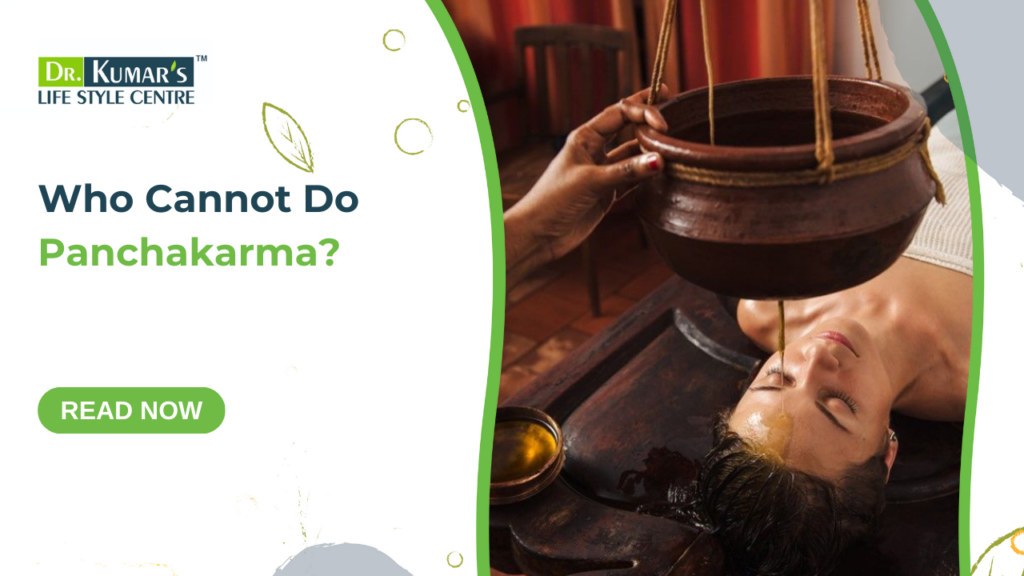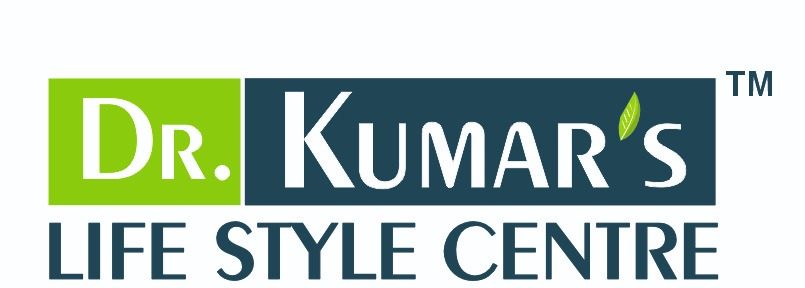Who Cannot Do Panchakarma?
- Dr Kumar

Panchakarma treatment is one of the most celebrated and effective therapies in Ayurveda. It is known for its ability to detoxify the body, rejuvenate the mind, and restore balance to the doshas (Vata, Pitta, and Kapha). But while Panchakarma therapy offers numerous health benefits, it is not suitable for everyone. Knowing who should avoid this ancient cleansing process is crucial for safety and effectiveness.
In this blog, we’ll explore the individuals who should not undergo Ayurvedic Panchakarma treatment, what precautions to take, and the reasons behind these guidelines.
Who Should Avoid Panchakarma Treatment?
Despite its therapeutic value, Panchakarma treatment may not be advisable for everyone. Here are some of the groups of people who should avoid undergoing this intensive cleansing therapy:
1. Pregnant Women
Pregnant women are generally advised to avoid Panchakarma therapy. The intense procedures involved, such as Virechana (purgation) and Vamana (emesis), can be too harsh on the body and may lead to complications in pregnancy. These therapies can cause stress and imbalance, potentially affecting both the mother and the developing fetus.
2. Individuals with Severe Debilitating Illnesses
People suffering from severe or chronic illnesses like advanced-stage cancer, AIDS, or severe heart conditions should not undergo Panchakarma cleanse. These individuals often have weakened systems that may not withstand the rigorous detox process, which can be taxing on the body’s energy reserves.
3. Elderly Individuals with Frail Health
While Ayurvedic Panchakarma treatment can be beneficial for maintaining vitality in older age, it may not be suitable for elderly individuals with frail health or those suffering from severe weakness. The intense cleansing process may further deplete their already low energy levels, leading to fatigue or other health complications.
4. Children Under the Age of 12
Children have a naturally delicate constitution, making them unsuitable candidates for the full Panchakarma therapy regimen. While certain mild Ayurvedic therapies may benefit children, the intense detox procedures involved in Panchakarma are not recommended for young bodies still in development.
5. People with Acute Infections or Fevers
Acute infections, high fevers, or inflammatory conditions are red flags for avoiding Panchakarma treatment. The body is already in a state of heightened stress and inflammation, and the rigorous detox process may worsen the symptoms, making recovery more difficult.
6. Those with Digestive Disorders
Ironically, while Panchakarma cleanse is designed to improve digestion, individuals with severe digestive disorders like Crohn’s disease, ulcerative colitis, or severe irritable bowel syndrome (IBS) may not be suitable for this treatment. The purgation and enema therapies can irritate the digestive tract, exacerbating symptoms.
7. Individuals with Low Immunity
People with severely compromised immune systems should avoid undergoing Panchakarma therapy. The detox process can sometimes temporarily weaken the body before it starts to strengthen it, which can leave immunocompromised individuals more vulnerable to infections.
Panchakarma Treatment Side Effects
Though Panchakarma treatment is generally safe when done correctly under the guidance of a qualified Ayurvedic practitioner, some individuals may experience side effects. These can include:
- Fatigue or weakness due to the intense detoxification process.
- Nausea or vomiting, especially if undergoing Vamana therapy.
- Diarrhea or loose stools as a result of Virechana (purgation therapy).
- Temporary increase in symptoms like headaches, skin rashes, or body aches as toxins are released.
Understanding Panchakarma treatment side effects helps in preparing oneself for the process and recognizing when it may not be suitable for certain health conditions.
How to Choose the Best Panchakarma Centre?
If you’re considering this Ayurvedic therapy, it’s essential to choose the best Panchakarma center . Here are some tips:
- Qualified Practitioners: Ensure that the center has certified and experienced Ayurvedic doctors.
- Customized Treatments: Look for a facility that offers personalized treatment plans based on your specific health needs and dosha type.
- Hygiene and Safety: The center should maintain high standards of hygiene, especially in therapy rooms and with the use of oils and herbs.
- Positive Reviews: Research testimonials and reviews from previous clients to gauge the quality of the services.
Selecting the best Panchakarma center or anywhere else can significantly impact the success of your treatment, ensuring you receive the maximum benefits without any adverse effects.
Conclusion
Panchakarma treatment is a profound Ayurvedic therapy that can bring about significant health improvements. However, it’s not suitable for everyone. Understanding who should avoid this therapy, the potential side effects, and the necessary precautions can help you make an informed decision.
If you’re considering a Panchakarma cleanse, always consult with a qualified Ayurvedic practitioner to assess your suitability. Remember, the right guidance can make all the difference in ensuring a safe and transformative experience. For those looking for expert care, Dr. Kumar’s Lifestyle Center is a trusted option, offering personalized treatments to ensure the best results.
By choosing the best Panchakarma clinic, like Dr. Kumar’s Lifestyle Center, and following the necessary precautions after Panchakarma, you can enjoy the full spectrum of benefits that this ancient therapy offers.
